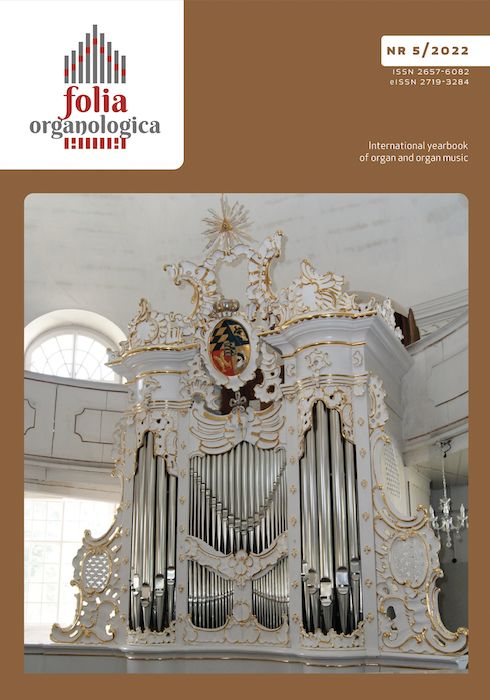Osobnost Vladimíra Němce
The Personality of Vladimír Němec
Author(s): Petr KoukalSubject(s): History, Fine Arts / Performing Arts, Cultural history, Music, History of Art
Published by: Uniwersytet Opolski
Keywords: Vladimír Němec; history of the organ in Prague and Bohemia; sacred music life in Prague 1920–1946; the book "The P rague Organs"; the organ department of the P rague Conservatory
Summary/Abstract: Vladimír Němec is often considered the "man of one book", i.e. of his “The PragueOrgans”. This monography is so extraordinary in the context of Czech musicological literaturethat it raises legitimate questions about the personality of its author. It turns outthat Vladimír Němec's activities were in fact very extensive, always at a high level. Aftergraduating from the master school of the organ department of the Prague Conservatory,he became organist and choir director in several important Prague churches. The artisticlevel of his musical productions at St. Wenceslas in Prague-Smíchov attracted the attentionof the Czechoslovak Radio (Radiojournal), which began to broadcast them live aspart of regular church music programmes. Deepened cooperation with the radio stationled him to found an independent Association for Sacred Music (Sdružení pro duchovníhudbu), which became an important part of Prague's musical life. In the 1930s, thedramaturgy of the Association was unrivalled, focusing, among other, on Baroque musicby Bohemian composers.The Němec´s personality rarely combined artistic talent with a never-ending, systematiceffort to learn the deeper essence of music That is why, at the same time, Němec furtheredhis education by studying musicology at Charles University. He graduated in 1929and then prepared to defend his doctorate, which he successfully completed only in 1945due to the closure of universities during the Second World War. The main focus of hisscientific interest became Baroque church music and the history of the organ. He got tosuch a professional level that he was able to publish the results of his studies. His articleson folk pilgrim songs, on the new organ in the Radiojournal building, on the curriculumof the organ department of the Conservatory of Music, on the history of the organ in TýnChurch, etc. appeared in professional music journals. After the radical rebuilding of theorgan in the church of St. Jakub, when the baroque instrument of the famous AbrahamStarck disappeared, he published a strongly critical article Fighting for the Early Organs(Do boje za staré varhany). In this text he has already fully revealed himself as a determineddefender of the historic organs. All his great knowledge and practical experienceas a talented musician and an outstanding musicologist were combined at the highestprofessional level in his book The Prague Organs. He explores not only the history of theorgan, but also describes the development of its sound parameters. He thus understandsthe organ as a complex phenomenon being studied from the perspective not only of heuristicsbut also of other musicological disciplines – organology, musical acoustics, musicalaesthetics, musical interpretation, music sociology, etc. That is why he introduces andworks with the term of "sound ideal". In this respect, he becomes one of the first Czechdeeply educated and experienced advocates and promoters of a monumental approach inorganbuilding and a historically informed attitude to music performance.At the end of his short life he began teaching liturgical music and organ playing atthe Prague Conservatory. He proved to be a passionate teacher for whom teaching wasirreplaceable and in a way fatal.
Journal: Folia Organologica. International yearbook of organ and organ music
- Issue Year: 2022
- Issue No: 5
- Page Range: 84-95
- Page Count: 12
- Language: English, Czech

